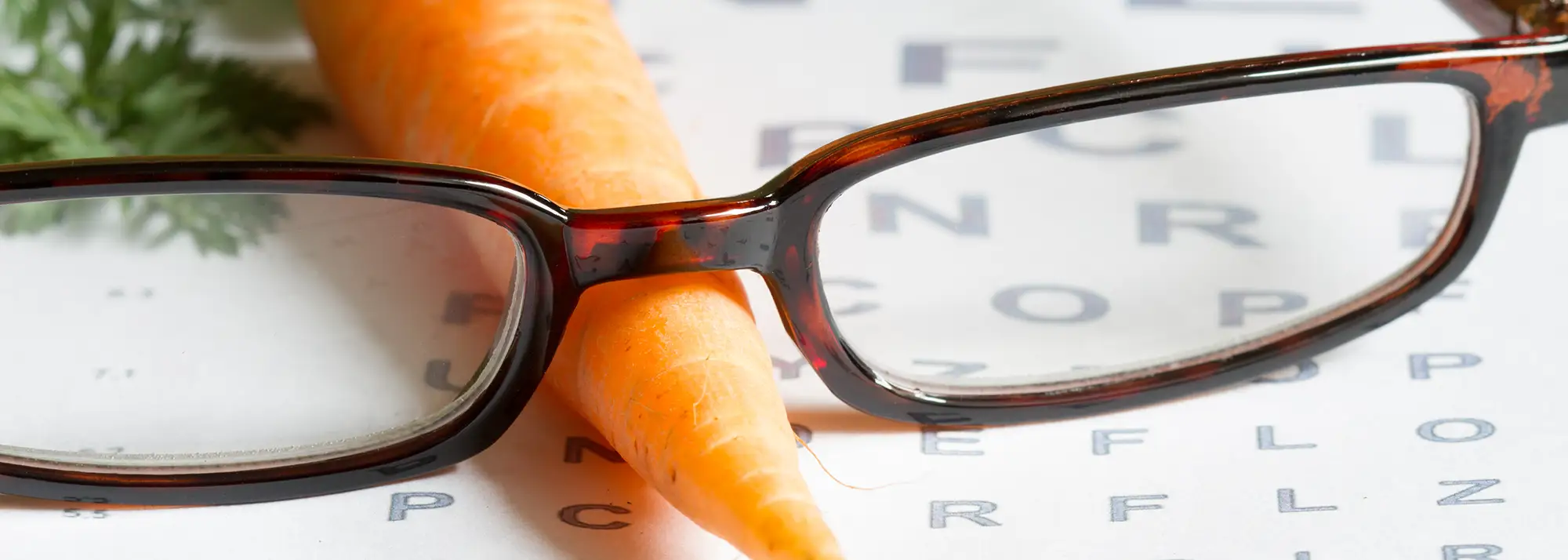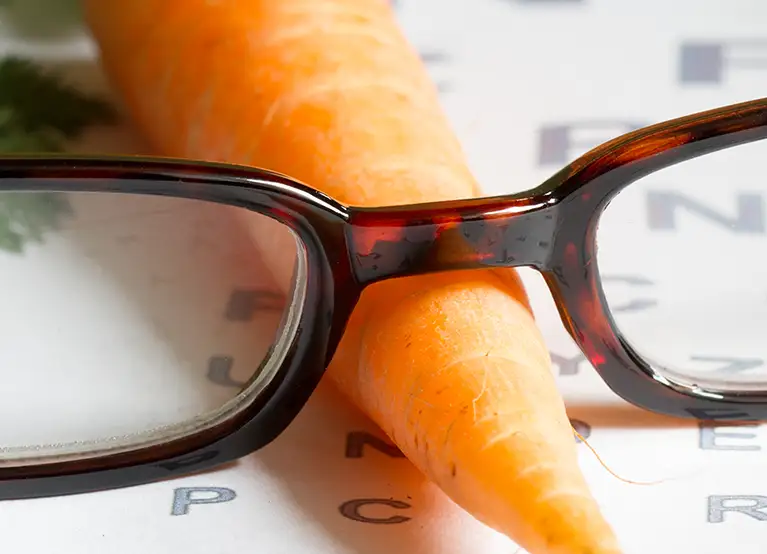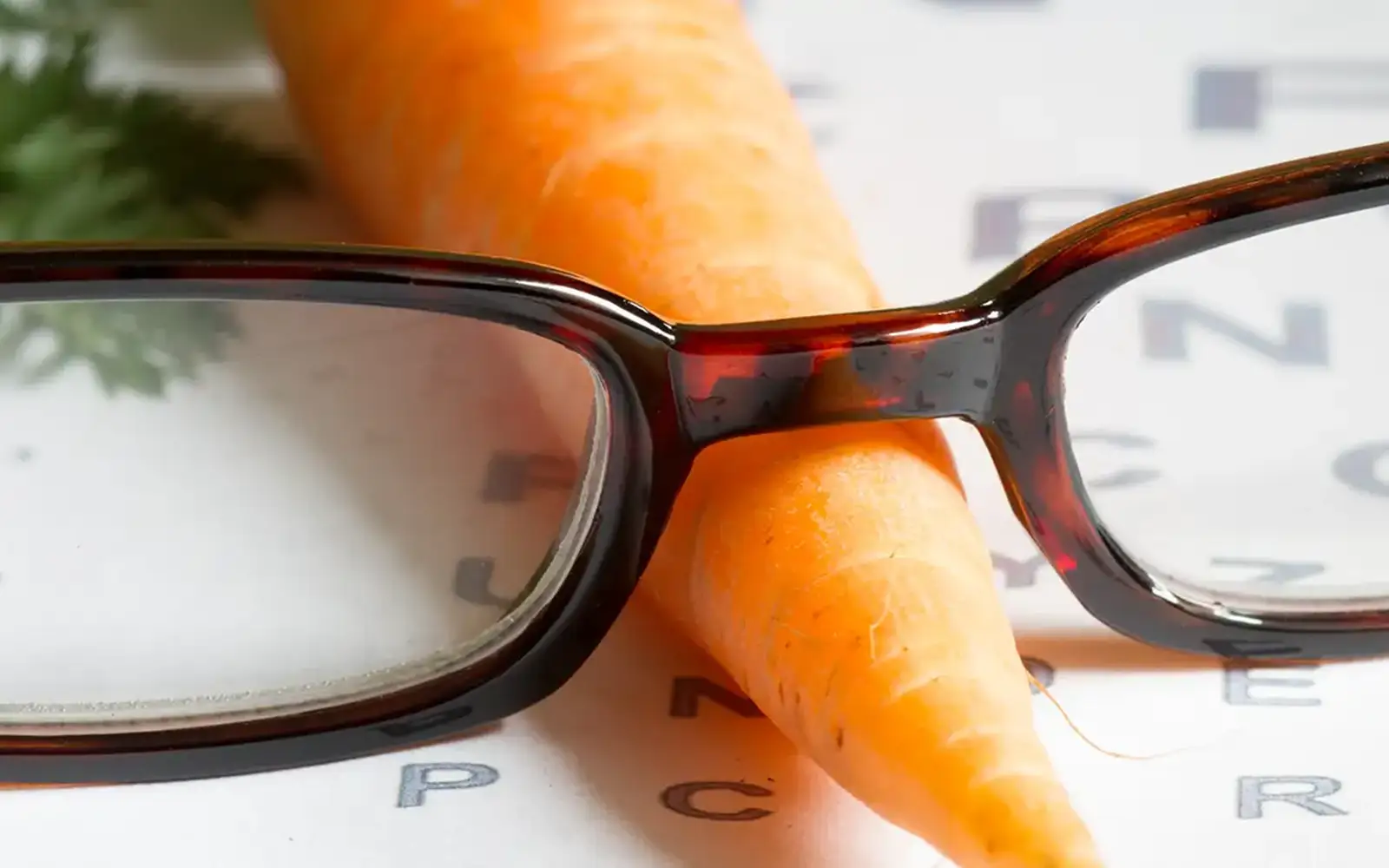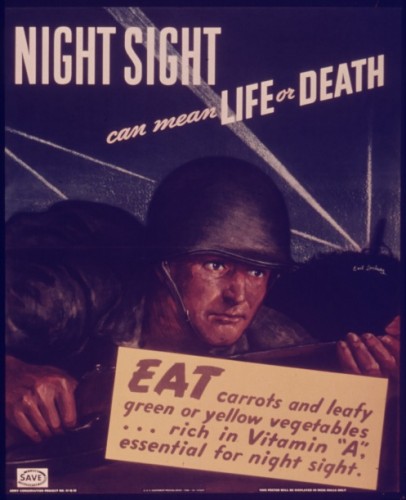The link between carrots and eye health and... World War 2?
Most of us have heard that eating carrots can improve your eyesight. The idea that carrots will improve your vision has been around for decades, and there is certainly truth to it. According to the Harvard School of Public Health, a carrot's main nutrient, beta-carotene, can help your eyes adjust in dim lighting - but will not give you night vision or rid your need for glasses. While carrots do contain nutrients that are important for eye health, their ability to improve eyesight has been greatly exaggerated during World War 2 for a very strategic reason.
The Origin of the Carrot Myth
During World War 2, the British government often issued city-wide blackouts to make it more difficult for German aircraft to hit targets. Meanwhile, the Royal Air Force (RAF) was using a secret, new radar technology to detect enemy planes. This technology allowed the RAF to detect planes from a distance and intercept them before they could reach their targets. The Germans were baffled by how the RAF was able to detect their planes so easily, and the British government used this confusion to their advantage.
The government launched a propaganda campaign that suggested that the RAF's pilots had superhuman eyesight because they ate lots of carrots. The idea was meant to send the Germans down a rabbit hole and cause them to start feeding their own pilots lots of carrots in an attempt to improve their own eyesight - all while the RAF's radar technology remains undetected.
Whether or not the Germans fell for it, the myth became widely accepted within the general public. The British public believed eating more carrots would help them see better during the city-wide blackouts, and carrots became known as the food that could improve your eyesight.
The Science Behind Carrots and Eyesight
Vitamin A is an important contributor to healthy eyes. According to the World Health Organization, an estimated 250,000-500,000 children who are vitamin A-deficient become blind every year. While carrots are a good source of vitamin A, experts recommend a colorful diet for good eye health. In addition to carrots, foods that contribute to vision health include:
- Other foods rich in vitamin A: sweet potatoes, canteloupes, apricots
- Vitamin C: oranges, red bell peppers, strawberries
- Vitamin E: Avocados, almonds, sunflower seeds
- Omega-3 fatty acids: Salmon, tuna, sardines
- Leafy green vegetables
- Eggs, beans and nuts
Other Factors that Impact Eye Health
There are several factors aside from nutrition that can impact the health of your eyes, including age, medical conditions, lifestyle factors, and genetics. Taking care of your eyes is crucial for maintaining good vision and overall health. By adopting healthy habits and making small changes to your lifestyle, you can significantly reduce the risk of developing eye problems and protect your eyes from damage. Try incorporating these habits into your daily routine:
- Schedule regular eye exams: It's important to have regular eye exams to check for any changes in your vision and to catch any potential eye problems early.
- Wear protective eyewear: When participating in activities such as sports or home improvement projects, wear protective eyewear such as safety glasses or goggles.
- Practice good hygiene: Avoid touching your eyes with dirty hands and regularly wash your hands to prevent the spread of infection.
- Give your eyes a break: Take regular breaks when using digital devices, rest your eyes when reading or doing close-up work, and practice the 20-20-20 rule, which involves taking a break every 20 minutes to look at something 20 feet away for 20 seconds.
- Protect your eyes from the sun: Wear sunglasses that provide protection from both UVA and UVB radiation when spending time outdoors to help prevent damage from the sun.
Final Thoughts: The Link Between Carrots and Eye Health
Although carrots are often associated with promoting good eye health due to their high content of beta-carotene, their benefits have been highly exaggerated since World War 2. However, they remain a convenient and accessible option to include in a well-rounded diet along with other nutrient-rich foods that can contribute to maintaining good eye health.
Carrots are not the magic solution for perfect eyesight, but combined with other habits such as good hygiene and regular visits to the eye doctor, they can help ensure your eyes remain healthy and functioning optimally for years to come.




